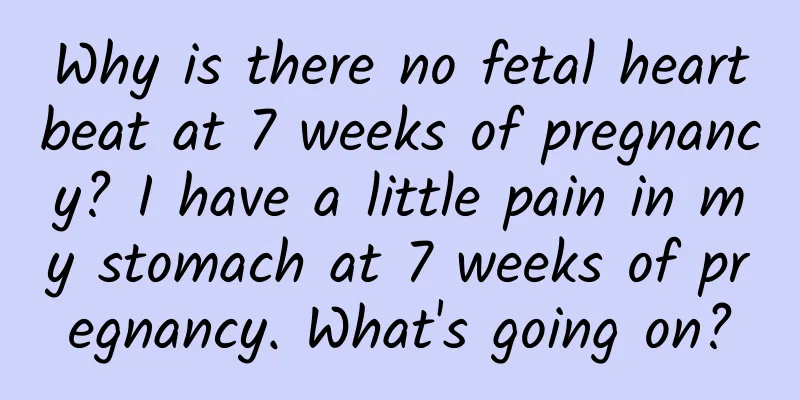Belly bloating and farting in early pregnancy

|
The cause of bloating and frequent flatulence in early pregnancy is mostly related to the diet of pregnant women. The digestive function of expectant mothers is weakened during pregnancy, so they should eat more coarse grains, fruits and vegetables. Appropriate exercise can also speed up intestinal peristalsis and relieve bloating and frequent flatulence during pregnancy. Some foods that easily produce gas, such as cabbage, radish, sweet potato, etc., should be eaten less. Is it normal to have a bloated stomach and fart during early pregnancy? After pregnancy, changes in hormone levels can cause gastrointestinal motility to slow down, resulting in intestinal bloating, constipation, etc. The fiber content in the diet should be increased, the staple food should not be too refined, and some coarse grains and vegetables should be eaten appropriately. Don't stay in bed for too long, and exercise appropriately. Don't worry too much. Pregnant mothers can eat more of this type of food in the early stages of pregnancy: 1. Foods high in protein Boiled eggs, meat (best cooked by boiling or stewing), deep-sea fish (steamed or boiled are better), try not to use greasy methods such as frying or braising. Milk has a high protein content and is a good nutritious food in the early stages of pregnancy. If the expectant mother does not like drinking milk, she can drink yogurt, or eat milk slices, cheese, etc. before pregnancy. She can also use ice cream instead of milk, but be careful to eat less cold food. 2. Vegetables Precautions during pregnancy: Various fresh vegetables are good choices, especially green leafy vegetables, because green leafy vegetables are high in folic acid. Expectant mothers all know that they should supplement with an appropriate amount of folic acid in the early stages of pregnancy to prevent neural tube defects in the baby. Green vegetables should also be cooked by boiling, stir-frying, or serving cold. 3. Fruits During the development of the fetus, fruits need vitamins to participate in cell synthesis. Although eggs, milk, and beans. Vegetables contain a lot of vitamins, but they are easily soluble in water and are often lost in large quantities during the cooking process. The fruit can be washed and eaten raw. This avoids the loss of vitamins during the heating process. Therefore, pregnant mothers should eat some fruits appropriately, especially fresh fruits. It is very beneficial to supplement the vitamin needs of oneself and the fetus. What to eat during early pregnancy Most expectant mothers in the early stages of pregnancy are troubled by pregnancy reactions and have poor appetite. However, the early pregnancy is the stage when the main organs of the fetus develop and form, especially the development of the neural tube and major internal organs. During this period, the fetus's organ development particularly requires vitamins and minerals, especially protein, folic acid, and iron. 1. Eat more fresh fruits and vegetables to provide pregnant women with the needs of vitamins A, C, calcium and iron. 2. Eat more whole grains and less refined rice and noodles, because whole grains such as corn and millet contain more vitamin B and protein than rice and noodles. 3. Eat more cereals, peanuts, etc., because these foods contain a lot of easily digestible protein, vitamins B and C, iron and calcium, etc. 4. You can add 1-2 eggs to your diet every day because eggs are rich in protein, calcium, phosphorus and various vitamins. 5. Get more sun exposure to enable the body to produce a variety of vitamin D to ensure the needs of fetal bone growth. 6. Pay more attention to supplementing trace elements, such as zinc, magnesium, iodine, copper, etc. Iron, zinc, copper, etc. are found in animal foods, beans, cereals, and vegetables, while seafood contains high levels of iodine. What is the best thing to eat in the early stages of pregnancy? From the above explanation, you should eat more foods rich in folic acid within the three months of pregnancy, because folic acid can effectively prevent fetal malformations. Therefore, people can use folic acid as a reference in life and choose some high-nutrition value, non-irritating foods to supplement nutrition. |
<<: Stomach discomfort in early pregnancy but no vomiting
>>: Early symptoms of internal hemorrhoids in women
Recommend
Can I sweat steam during my period? Female friends, come and find out!
There are many things that women need to pay atte...
Why do pregnant women fart so badly?
Some pregnant women fart with a strong odor and w...
What to do if pregnant woman has an itchy throat
Pregnancy is a special period, and you need to be...
Can I skip rope during my period?
Is it okay to fly during menstruation? Fly jumpin...
5 reasons why women have spots on their faces
I believe that most women will find it difficult ...
Why does my scalp hurt when I tie my hair?
I believe that many girls who love to tie their h...
Early pictures of vulvar flat warts
Flat warts are no stranger to many friends. They ...
Brown blood ten days before menstruation
Because every woman will excrete some secretions ...
Can I go to the hospital for toothache during the epidemic? What should I do if I have toothache during the epidemic?
Can I go to the hospital for toothache during the...
What medicine should I take to stimulate blood flow when my menstrual flow is small?
What medicine is good for insufficient blood and ...
What are the symptoms of high cholesterol in women?
High cholesterol can be harmful to your health, e...
Pregnant women's nipples become bigger and darker
During pregnancy, a woman's body will undergo...
What should I do if I have poor blood circulation after childbirth?
In real life, many expectant mothers feel both sc...
Specific medicine for pelvic inflammatory disease
Pelvic inflammatory disease is a problem that man...
What causes puffy eyes in women?
Many female friends have this feeling. When they ...









